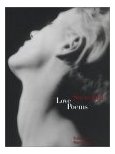|
Contents » Cover |
||
|
Essays
From the silence in emptiness, to the silence in fullness. If you were lucky enough to see the recent exhibition at the Met, Surrealism: Desire Unbound, you'll see that this volume expansively supplements the richly illustrated and erotic exhibition and catalog. Caws, a noted scholar of avant-garde art and literature, opens this little book with an essay connecting surrealist principles with desire, passion, and the forbidden. The surrealist moment, rebellious, and yet conservatively masochistic, manifested work of great vitality and uninhibited love. Transgressive, liberating, and seductive, surrealist work can be disturbing, even offensive (perhaps more so in the visual work); but Caws believes "surrealist love picked up on courtly love, with all its contraries: to possess is no longer to love, so the truest love is in the pursuit itself." Thus, surrealism's eroticizing and violent images serve to open the world to transformative possibilities. The sixty poems, many translated into English for the first time, are accompanied by photographic images further complementing the poems. All the great poets are here, Breton, Char, Aragon, Dal�, Desnos, and Eluard. And some you may not know wrote poems—Kahlo and Picasso. There are writers I didn't know before—Maar and Mansour. I was surprised to find Neruda absent, but the addition of a number of women poets eases the heavy chauvinism one sometimes feels when reading or viewing surrealist works. Surrealist Love Poems is a pillow book for the adventurous mind, an explicit dream of love. Here's an excerpt from Breton's "Free Union": "My love whose hair is woodfire / Her thoughts heat lightning / Her waist an hourglass / My love an otter in the tiger's jaws . . . Her teeth footprints of white mice on white earth / Her tongue smooth as amber and as glass . . . My love whose legs are fireworks / Moving like clockwork and despair / My love her calves of elder tree marrow . . . My love whose sex is gladiolus" These poems remind us how flaccid, self-absorbed, and derivative so many contemporary surrealist inspired poems are. It's not impossible to write a successful one today, but it takes a move from aesthetic to belief—something that's hard to access when outside the urgency of a movement. They also prove that unrestrained words can evoke space and silence too. Neither is easy. The Surrealists mastered it.
|
|||||
